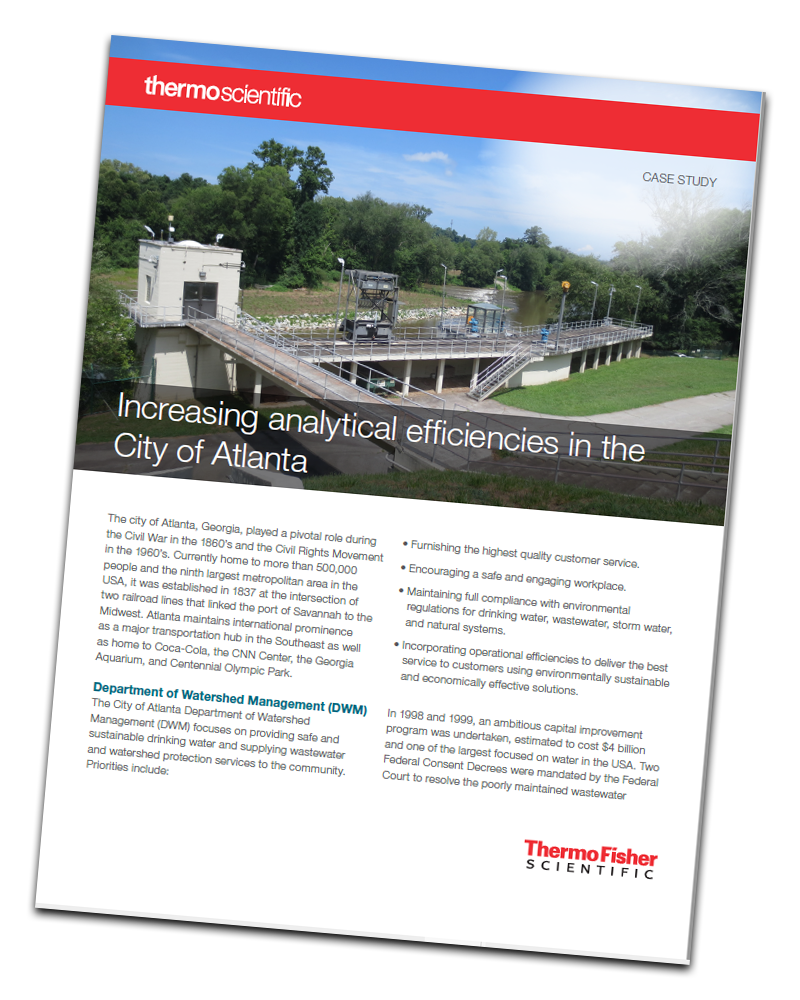Read how the City of Atlanta Department of Watershed Management found automated methods using a Thermo Scientific Gallery Plus discrete analyzer to reliably test and supply safe drinking water.
 The City of Atlanta located in Georgia, USA is home to more than 500,000 people and the ninth largest metropolitan area in the
The City of Atlanta located in Georgia, USA is home to more than 500,000 people and the ninth largest metropolitan area in the
USA.
The City of Atlanta Department of Watershed Management (DWM) focuses on providing safe and sustainable drinking water and supplying wastewater and watershed protection services to the community. In 1998 and 1999, an ambitious capital improvement program was undertaken, estimated to cost $4 billion and one of the largest focused on water in the USA. Two Federal Consent Decrees were mandated by the Federal Court to resolve the poorly maintained wastewater system under a strict schedule of requirements.
Clean drinking water in Atlanta is sourced from a raw water system in which three cast iron pipelines installed from 1893 to 1924 are still in use. This old system has exceeded its intended life even though a cement liner was installed in the 1950s. A fourth line was built in 1975; however metallurgical weaknesses restrict its use to the warmer weather months. Raw water is drawn from the Chattahoochee River for all of Metro Atlanta. Looking toward the future, a plan exists to build a new five-mile conveyance following the current cast iron pipeline path and ending at a quarry that will hold 2.4 billion gallons of water. In the meantime, the DWM is charged with providing clean and safe drinking water for the people of Atlanta.
The Thermo Scientific™ Gallery™ Plus discrete analyzer was added to the existing equipment at the laboratory in order to automate analysis procedures. It has an attached electrochemical (ECM) unit with which they can test pH and conductivity in addition to the desired alkalinity and hardness tests.
Read more about how the DWM in Atlanta found automated methods that enable them to reliably test and supply safe drinking water to the citizens of Atlanta and how by using a discrete analyzer their analytical efficiency has increased.




